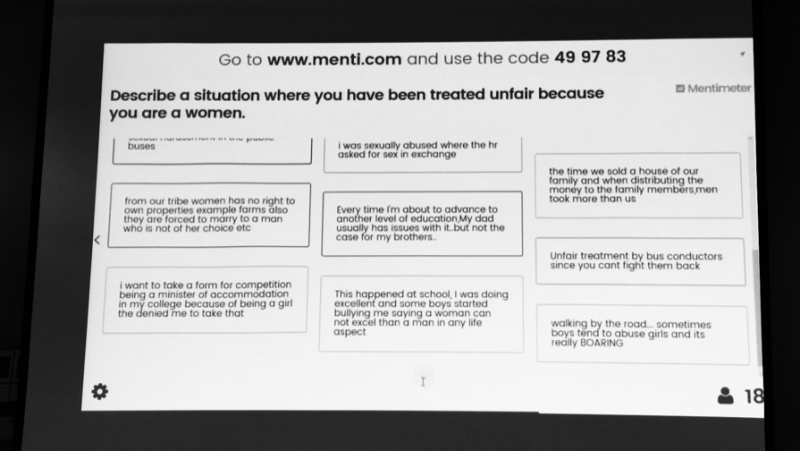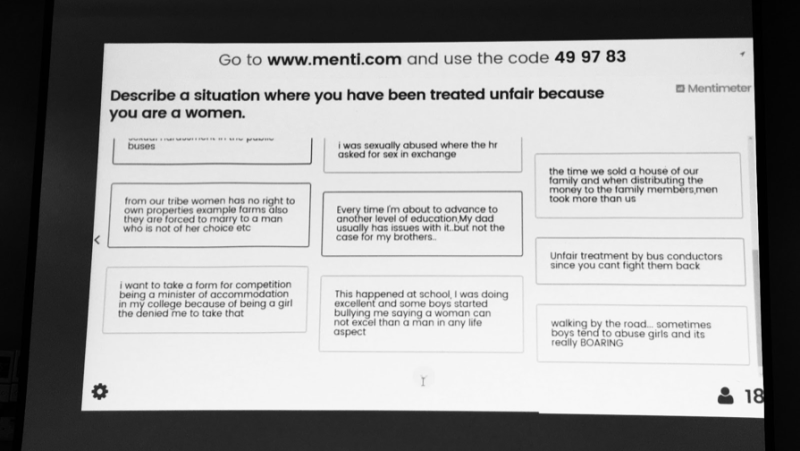
Have you ever found yourself wanting to address a delicate subject with someone but fearing that it might escalate into a heated argument? We’ve all been there. Whether it’s discussing finances, politics, or personal matters, broaching sensitive topics can be a challenge. However, there are effective strategies that can help you navigate these conversations with grace and understanding, ultimately fostering open and constructive dialogue. In this article, we will explore some tips and techniques to help you bring up sensitive topics without starting a fight.

This image is property of images.squarespace-cdn.com.
Choose the Right Time and Place
When bringing up a sensitive topic with someone, it’s essential to choose the right time and place. Consider the person’s mood and stress level before initiating the conversation. If they have had a particularly difficult day or seem overwhelmed by other issues, it may not be the best time to discuss a sensitive matter. Wait for a moment when they are relatively calm and receptive.
In addition to the timing, finding a quiet and comfortable setting can greatly impact the success of the conversation. Avoid noisy or crowded places that might distract or make the person uncomfortable. A peaceful environment can create a conducive atmosphere for open and honest communication.
Use a Calm Tone and Body Language
The tone and body language you choose when discussing a sensitive topic can make a significant difference in how the conversation unfolds. It’s vital to speak in a gentle and non-accusatory manner, showing respect and understanding. By using a calm tone, you create an inviting atmosphere for the other person to express themselves honestly.
Equally important is maintaining an open and relaxed posture. Crossing your arms or adopting a defensive stance can inadvertently signal hostility and make the person feel defensive. Instead, try to relax your body, make eye contact, and face the person directly. These subtle cues can help convey your genuine desire for a productive and respectful conversation.
Express Empathy and Understanding
One of the most critical aspects of discussing a sensitive topic is expressing empathy and understanding towards the other person’s feelings. Validating their emotions shows that you acknowledge and respect their perspective. It helps create a safe space where they feel comfortable opening up and sharing their thoughts.
When expressing empathy, be mindful of your tone and choice of words. Use phrases such as “I can understand why you might feel that way” or “I hear how important this is to you.” By demonstrating that you recognize their emotions and value their point of view, you foster a sense of trust and enhance the overall conversation.
Focus on I-Statements
It’s easy to unintentionally sound accusatory when discussing sensitive topics. To avoid this, it’s beneficial to focus on using “I” statements instead of “you” statements. “I” statements allow you to share your own perspective without directly attacking the other person. This approach promotes mutual understanding and reduces defensiveness.
For example, instead of saying, “You always make me feel neglected,” you could rephrase it as, “I sometimes feel neglected when certain things happen.” By using “I” statements, you take responsibility for your own emotions and avoid blaming the other person.

This image is property of images.squarespace-cdn.com.
Active Listening
Active listening is a crucial skill when discussing sensitive topics. To engage in active listening, it’s essential to pay full attention to the person speaking and refrain from interrupting. Let them express their thoughts and feelings without interruptions or judgment.
Reflecting on what the person is saying and asking clarifying questions demonstrates that you are genuinely interested in understanding their perspective. This can help clarify any misunderstandings and ensure that you both have a clear understanding of each other’s views. Active listening shows respect and can lead to a more productive and empathetic conversation.
Avoid Generalizations and Stereotypes
Language plays a significant role in how we communicate, especially when discussing sensitive topics. It’s important to speak in specific terms and avoid making sweeping statements or generalizations. Generalizations can perpetuate stereotypes and hinder productive dialogue.
Instead of making broad statements like, “You always do this,” or “Everyone thinks this way,” try to focus on the specific behaviors or situations that concern you. This approach allows for a more precise discussion, eliminating assumptions and promoting a more genuine exchange of ideas.
Additionally, it’s crucial to recognize and challenge any preconceived biases you may have. Our own biases can color our perceptions and distort our understanding of others’ viewpoints. By actively challenging these biases, we can create a more inclusive and open conversation space.

This image is property of thrivefamilyservices.com.
Find Common Ground
When discussing a sensitive topic, it’s easy to focus on differences and become entrenched in opposing positions. However, finding common ground can help bridge the gap and create a more constructive dialogue. Start by identifying shared values or goals that both parties can relate to.
By highlighting areas of agreement before diving into the differences, you establish a sense of connection and understanding. This can foster a more collaborative approach and increase the likelihood of finding mutually beneficial solutions.
Offer Solutions or Suggestions
Merely discussing a sensitive topic without offering potential solutions can leave both parties feeling stuck or frustrated. To move forward, consider presenting alternatives or compromises that address the concerns raised. Instead of placing the burden solely on the other person to come up with solutions, take the initiative to brainstorm potential ways to address the issue together.
Offering solutions or suggestions shows your commitment to finding a resolution and reinforces your willingness to work through the matter collaboratively. Encourage the other person to share their ideas as well, as this fosters a sense of ownership and investment in the process.

This image is property of images.ctfassets.net.
Manage Emotional Triggers
Engaging in discussions about sensitive topics can sometimes trigger emotional reactions in both parties. It’s essential to recognize your own emotional triggers and take steps to manage them during the conversation. Heightened emotions can cloud judgment and hinder productive communication.
If you find yourself becoming overwhelmed or stressed during the discussion, take breaks when necessary. Stepping away for a moment to gather your thoughts or practice deep breathing can help you regain composure and approach the conversation with a clear mind.
Remember, managing emotional triggers goes both ways. Be mindful of the other person’s emotional state and respond compassionately if they exhibit signs of distress. Creating a safe emotional space allows for more effective communication and understanding.
Be Willing to Compromise
In any discussion, but particularly when addressing sensitive topics, it’s crucial to prioritize the relationship over being right. A willingness to compromise demonstrates respect for the other person’s views and encourages a collaborative approach.
Seeking common ground and finding mutually acceptable solutions should be the ultimate goal. This requires both parties to let go of rigid positions and work together to find a middle ground that addresses everyone’s concerns. Compromise isn’t a sign of weakness but rather a testament to the strength of the relationship and the commitment to finding resolution.
By applying these strategies, you can navigate sensitive topics with greater ease and enhance the chances of having productive and respectful conversations. Remember, effective communication is a lifelong skill that requires practice and patience. With time and effort, you can develop the ability to discuss sensitive matters in a constructive and compassionate manner.






